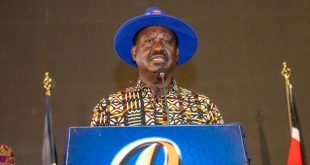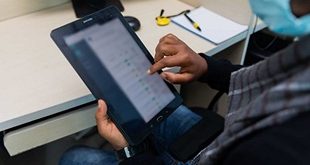
Uganda’s Who-is-Who live in fear of US travel ban
Kampala, Uganda | IAN KATUSIIME | As if U.S. sanctions slapped on President Yoweri Museveni’s former right hand man, Gen. Kale Kayihura for his role as Inspector of General of Police were not bad enough, another top government official, Pius Bigirimana was allegedly denied a visa to the U.S. according to a report by the New Vision, a state controlled newspaper.
Bigirimana is the Secretary to the Judiciary and a go-to-man for President Museveni. He has served as Permanent Secretary in the Office of the Prime Minister and at the Ministry of Gender, Labour and Social Development.
Bigirimana denies the U.S. denied him a visa and says, according to the New Vision newspaper of Sept. 30, there was a delay in the processing of his visa application by the U.S. government and he was told to “hold on”.
But the Bigirimana incident and another in which officials of the ruling party NRM failed to travel to the U.S. over visa related complications have prompted discussion in the Ugandan public on the diplomatic undercurrents between U.S. and Uganda in light of the Kayihura sanctions.
Asked by The Independent to comment on whether these events are not a sign of fraying relations, U.S. Embassy Spokesperson, Philip Demon, said what happens at the embassy visa desk is not related to politics.
“U.S. officials make visa decisions strictly based on U.S. law, not political ebbs and flows. Visa records are confidential under U.S. law; therefore, for privacy reasons the U.S. government does not comment on individual visa cases.”
Uganda’s Foreign Ministry would usually be expected to give an official government position on the American visa scare but the current Minister of Foreign Affairs, Sam Kutesa, appears to be hobbled by a U.S. travel ban.
Kutesa, a longtime top Museveni confidant and former president of the 69th session of the UN General Assembly is currently in a precarious position as far as the U.S is concerned. In December 2018, a U.S. court convicted Patrick Ho Chi Ping, a Chinese businessman, of bribing Kutesa with $500,000 to bag an energy contract in Uganda.
“They can easily embarrass him,” a diplomatic source told The Independent about Kutesa last year before the conviction of Ping.
When asked to comment on rumours of Kutesa being persona non grata in America, Dimon refused to comment.
Meanwhile Kutesa who as minister of foreign affairs should have ordinarily responded to the U.S. after the sanctions were announced, stayed silent.
In an interview, the Minister of State for International Affairs, Henry Okello Oryem told The Independent that the government is in discussion with the American State Department regarding the Visa denials and travel bans.
“We are engaging the State department on the Kayihura sanctions, even on Bigirimana because we want to understand better,” Oryem said.
Oryem also told The Independent that “There is no warrant of arrest or any charge against Sam Kutesa”. “They have not even initiated any criminal or civil suit against Kutesa,” he added.
In an interview, Ofwono Opondo, the government spokesman told The Observer newspaper the government would like the U.S. to release the list of Ugandans it has blacklisted.
“The problem is, they (U.S.) are not telling us who the blacklisted officials are,” Ofwono said.
There has been increased speculation that the snub of Ugandan officials at the American visa desk indicates a decline in the relationship between the U.S. government and President Yoweri Museveni. According to this narrative, the Americans no longer need Museveni for the main mission he has handled for them; in Somalia.
President Donald Trump has generally degraded the role of the African Union Mission in Somalia (AMISOM) now in its twelfth year and preferred instead to use American elite troops, drones, and direct collaboration with Somalia security Forces for the job. America has trained local forces called Danab (Lightning) Special Forces to spearhead its missions.
On Oct.02, the U.S. reopened its embassy in Somalia, 28 years after it was closed during a civil war that followed the ouster of then-Somali President Gen. Siad Barre that continues to date.
Since 2018, the U.S. Ambassador to Somalia Donald Yamamoto has been operating out of Nairobi, Kenya.
In testimony to the Senate Committee on Foreign Relations, Yamamoto reportedly listed “shifting security responsibilities from AMISOM” among his main objectives.
Yamamoto told journalists in Somalia that he wants increased visibility of American forces in Somalia.
“We’ve got to be seen. We’ve got to be present,” he said.
The reopening of the embassy coincided with the conclusion of Somali Partnership Forum, a two-day meeting between Somali leaders and the international community held in Mogadishu for the first time that discussed the fate of AMISOM.
Earlier in September AMISOM and UN Support Office in Somalia (UNSOS) officials met for five days in Mogadishu to develop a comprehensive roadmap to guide the AU mission’s activities and operations until 2021 when AMISOM is scheduled to leave under the Somali Transition Plan. AMISOM is now operating under the revised Concept of Operations (CONOPs) which deals with activities and operations until AMISOM hands over security responsibilities to the Somali Security Forces by 2021.
Before that when the Peace and Security Council met in August to review progress on AMISOM, it also called for facilitation of the drawdown of 1000 AMISOM troops in line with the UN Security Council Resolutions. Uganda has 6000 troops fighting Al Shabaab in Somalia, in a war where the UN meets Uganda’s logistical costs. But with the UN looking for a way to end AMISOM, Museveni could be looking at uncertain future geopolitically. As Museveni’s job in Somalia ends, America appears to be turning its back on him.
 The Independent Uganda: You get the Truth we Pay the Price
The Independent Uganda: You get the Truth we Pay the Price





A few days after USA-designated sanctions against former IGP kale kayihura, president M7 told all & sundry in his missive that his govt was not worried at all about the sanctions. He even wondered why Ugandans should bother themselves if the US doesn’t want them in their country? M7 said his govt had earlier rejected the said same act when the US told him which soldier is allowed or not to benefit from US-sponsored military/defense programs.
Ironically, his junior minister for international relations Henry Okello Oryem is now telling us president M7’s govt is behind curtains negotiating with same US govt on how the sanctions can be lifted, OR, specifically to know which particular govt individuals are unwelcome in the United States of America! It’s all so confusing my dear!
“Oryem also cautions on the language of diplomats. “We engage them on all issues but remember what they say in the press is not what they say in private.”
YES, what they say to the press is different to what they say in private, BUT, what they say to YOU in private is also different to what they say to OTHERS in private.
Likewise what is happening in SYRIA to the KURDS should be a big lesson to you.
WIKILEAKS should have been a lesson to you, but rightly you choose to bury your heads in the sand.